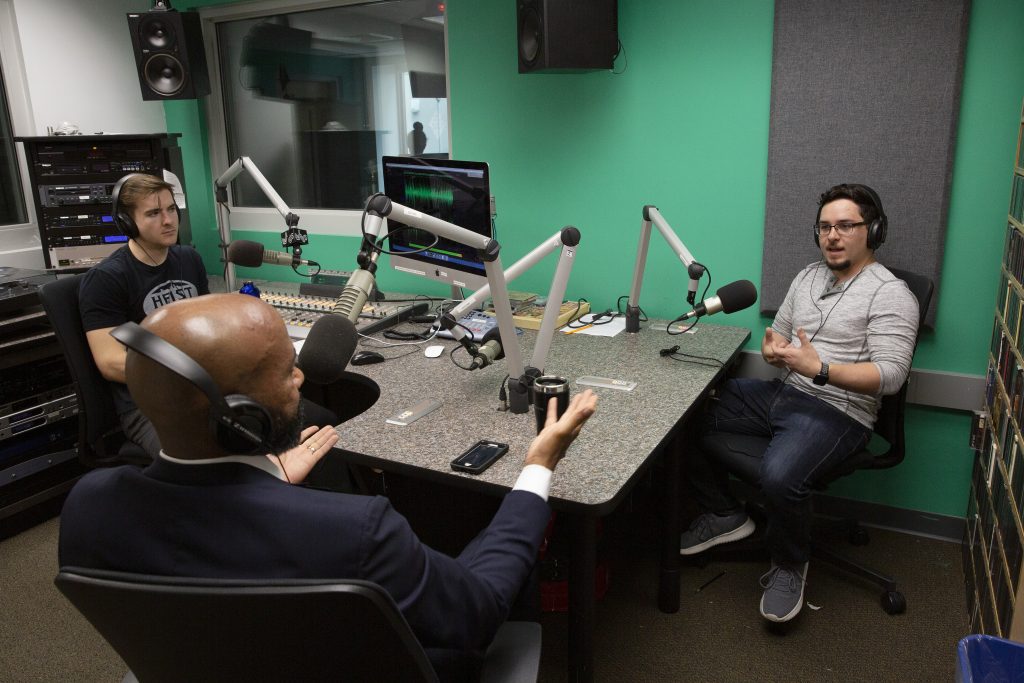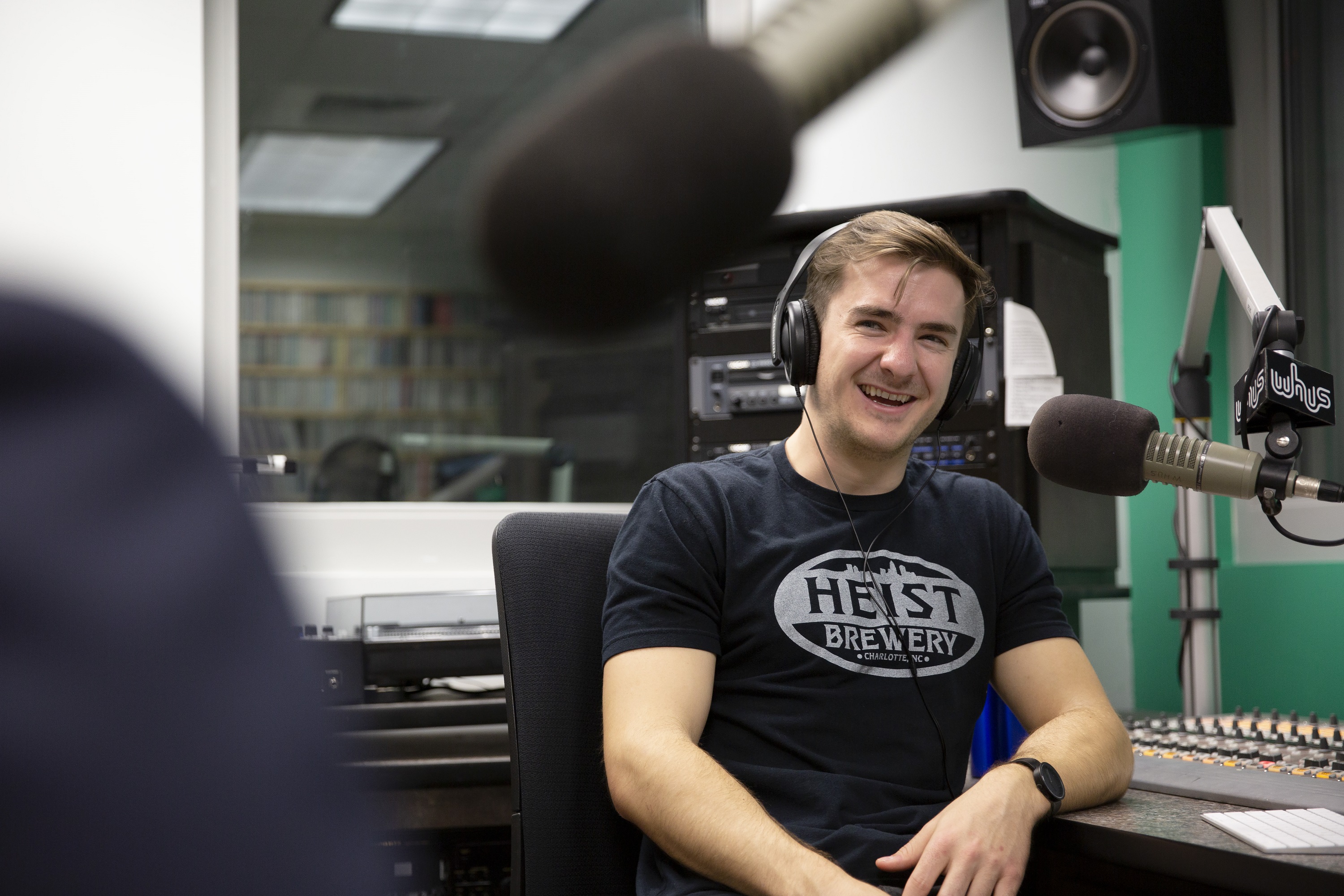In science, in vivo means to perform an experiment within a living organism. Now a team of UConn students has extended this terminology with the goal of understanding how UConn thrives. Their project, the In Vivo podcast, aims to get to know the fascinating faculty, staff, and students who give UConn life.
Kyle Drake, a University of Connecticut Ph.D. candidate in the Department of Physiology and Neurobiology, founded In Vivo with his classmate Alisa White in 2017. Drake and White were reflecting on their public outreach as young scientists when one of their professors made them confront a scary truth: they hadn’t really done anything to share their science with the community.
“The footprint UConn has is massive, but not many people are aware of the work that goes on here, so our professor said start a podcast, talk to the faculty members who are running these labs, and have them tell their stories,” Drake says. The podcast is currently supported by UConn’s Office of the Vice President for Research and Office of the Provost.

“The help that the Office of the Vice President for Research and Provost provided has allowed us to really grow the project into a functioning body of work,” Drake says.
With added resources, Drake was able to grow In Vivo’s staff with more students. Bringing other students onto the project also means there will always be an incoming cohort to keep the podcast going.
“The goal of the whole project was to make it evergreen so that, eventually, when I graduate we want to be able to pass it on,” Drake says.
The podcast was re-launched last year with a new co-host Victor Calle, also a graduate student from the Department of Physiology and Neurobiology. The team has already rolled out several new episodes this semester, including groundbreaking research by Jessica Rouge’s lab in chemistry, inspirational stories from two undergraduates who are US Army veterans, and educational wisdom from David Miller, UConn professor of psychological sciences who taught for 37 years. Interviews with history professor Jeffrey Ogbar, ecology and evolutionary biology professor Mark Urban, and speech language hearing sciences professor Erika Skoe will be coming out later this semester.
A priority for Drake has always been to have a diverse range of voices from across academic fields and campuses.
“We’re trying to be very interdisciplinary and we’re trying to keep things as diverse as possible because I think that’s a more accurate reflection of UConn,” Drake says. “There’s pioneering research being done in all fields and all disciplines.”
Another important element of the podcast is to address not just what the research is, but why it matters.
“In the big picture, that’s the more important thing—what is the benefit of the work that is being done?” Drake says. “Through this you can often glean insights into why people do it. Because research is hard, people aren’t going to do this work if they don’t truly like it.”
One of the most interesting parts of the interviews for Drake is allowing people to share their compelling personal histories, like those from Solomiya Ivakhiv, a world-renowned violinist who grew up in Soviet Ukraine, or Ken Thompson, an award-winning video game developer-turned digital media and design professor.
“There are all these people walking around campus who have these incredible life stories that many of us are not aware of,” Drake says. “I think that’s the coolest part of these podcasts, just being able to get an insight into the lives of our professors.”
Drake says he’d love for listeners, especially students, to reach out and suggest researchers for future episodes.
“I want students to email us,” Drake says. “Id’ rather have people tell me who they want to listen to rather than picking people on my own, because in the end it’s the listener who cares about the story.”
In Vivo is available on their website, social media (@invivopod), Apple Podcasts, and Spotify. For more information listeners can email invivo.podcast@gmail.com.



